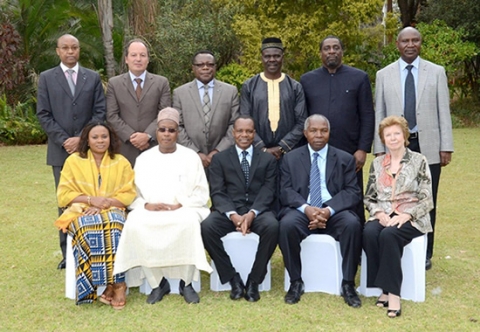
Harare, August (ACBF) – The Executive Board of the African Capacity Building Foundation (ACBF) held its 51st meeting on 13-15 August at the ACBF’s headquarters in Harare, Zimbabwe. The meeting focused on the progress made in implementing the Foundation’s 2014 business plan and took account of the results achieved thus far, as well as the Foundation’s resource mobilization effort including the role for the Executive Board. The meeting also approved revised policies for the effective operation of the Secretariat.
Prof. Emmanuel Nnadozie presented to the Executive Board the new directions to be explored for capacity building in Africa which include, private sector development, infrastructure project preparation and management, domestic resource mobilization and fighting illicit financial flows, management of complex infrastructure contracts and Africa’s engagement with the rest of the world.
Reviewing the Foundation’s activities since its previous meeting, the Executive Board noted the good standing of the Foundation’s portfolio of programs and projects with 71.6% of the operations rated satisfactory and above; the improvement of communication between the three governance organs of the Foundation – Board of Governors, Executive Board and Secretariat – which enhances cohesion and complementarity; the centrality of resource mobilization and strategic partnerships and the more systematic approach taken to resource mobilization by reengaging all past and current donors while diversifying sources of funding. In this regard, the Board expressed its satisfaction that African member countries reiterated the relevance of ACBF while renewing their commitment to playing a leadership role in securing the long term sustainability of the Foundation.
In the ACBF governance structure, the Executive Board is responsible for the operational policies, guidelines and strategies and meets ordinarily four times a year. It is composed of eleven members selected for their expertise in development as well as representatives of two of the three sponsoring agencies, namely the African Development Bank and the United Nations Development Programme.
The Executive Board includes three committees. The Operations Committee examines and provides guidance on projects, programs, knowledge management and other operational policy matters. The Finance and Human Resources Committee examines financial and human resources matters while the Audit and Risk Committee ensures that the Foundation's risk management tools are up to date.





